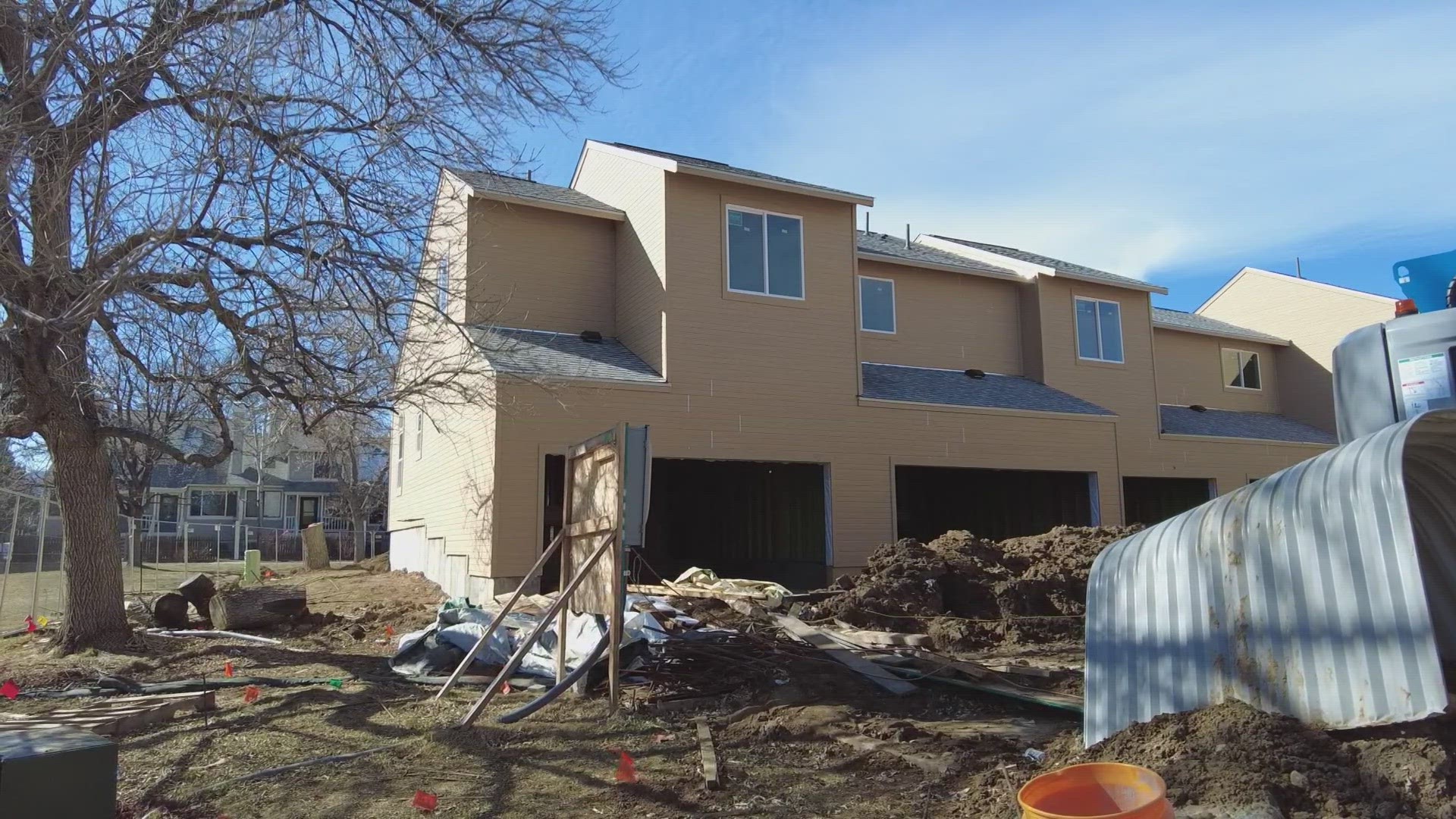DENVER — When a townhome complex in Louisville lost five buildings in the 2021 Marshall Fire, the homeowners board president expected the insurance would go up.
But not this much.
The Wildflower townhome community’s annual insurance premium went from $65,000 in June 2022 to $437,000 in June 2023, according to board president Mark Appelfeller. He said the costs along with the continued struggles of rebuilding after the fire are excessive.
“That double punch, that double whammy, those body shots just keep coming,” he said.
The increase there is reflective of a trend Steve On Your Side is seeing in the condo and townhome market. Many condo and townhome owners have contacted Steve On Your Side complaining about massive special assessments, vastly increasing monthly dues and costly insurance claims.
“Wildflower, the name of our community right here, is really the entry level housing market for Louisville,” Appelfeller said. “The cost per unit here is quote unquote 'affordable' as compared to most of the rest of town.”
But now the association has had to raise monthly dues above $400 and levy a $1,000 special assessment on all homeowners to pay for the jump in insurance cost. The association also had to use reserve funds to pick up the rest of the tab.
Appelfeller said these increases will lower potential buyer interest in the properties, which could have an impact on home values.
“You keep in mind resale opportunities in your members who might be trying to sell or something like that,” he said. “And the HOA dues are always a factor in that decision making.”
Last month, HOA attorney Molly Foley-Healy told state legislators the insurance increases for HOAs represents the biggest crisis she’s seen in associations in her 17 years of practicing law. Her testimony came as lawmakers debated a bill that would require Colorado’s insurance commissioner to study the market to look for solutions.
Foley-Healy was critical of one part of the bill: the report from the study isn’t due until Jan. 1, 2026.
“We've got such a crisis right now, we need to get that study done and finished in 2025,” she said. “And we need, you know, the study does show us what are potential solutions to deal with this.”
Colorado state Rep. Judy Amabile, D-Boulder, is a cosponsor of the bill. She said the study is necessary to get to the root cause of the issue.
“Part of the reason that we didn't just pass some legislation is because we genuinely don't really know, what is the right path forward,” she said.
“It matters that we get it right. Because if we regulate in a way that maybe helps one sector, then that potentially hurts other sectors," she said.
Amabile told 9NEWS the 2026 timeline is reasonable, as the bill likely won’t get signed into law until the summer and the state would then have to go through an RFP process to find a contractor to complete it, meaning a study couldn’t start until early 2025 at the earliest.
“Everybody would like us to move more quickly,” she said. “But also, we have to move carefully. And we have to follow the rules that we've set up for good reasons because of past experiences, where we rush things and maybe don't get the right result.”
Back in Louisville, Appelfeller and his neighbors are bracing for another expensive renewal, worried relief may still be years away.
“If they could figure out a way to graduate costs increased over time. might be helpful,” he said.
Have your HOA dues increased? Tell Steve On Your side how much more you’re paying or send a tip about another consumer problem by filling out this form.
SUGGESTED VIDEOS: Steve on Your Side

